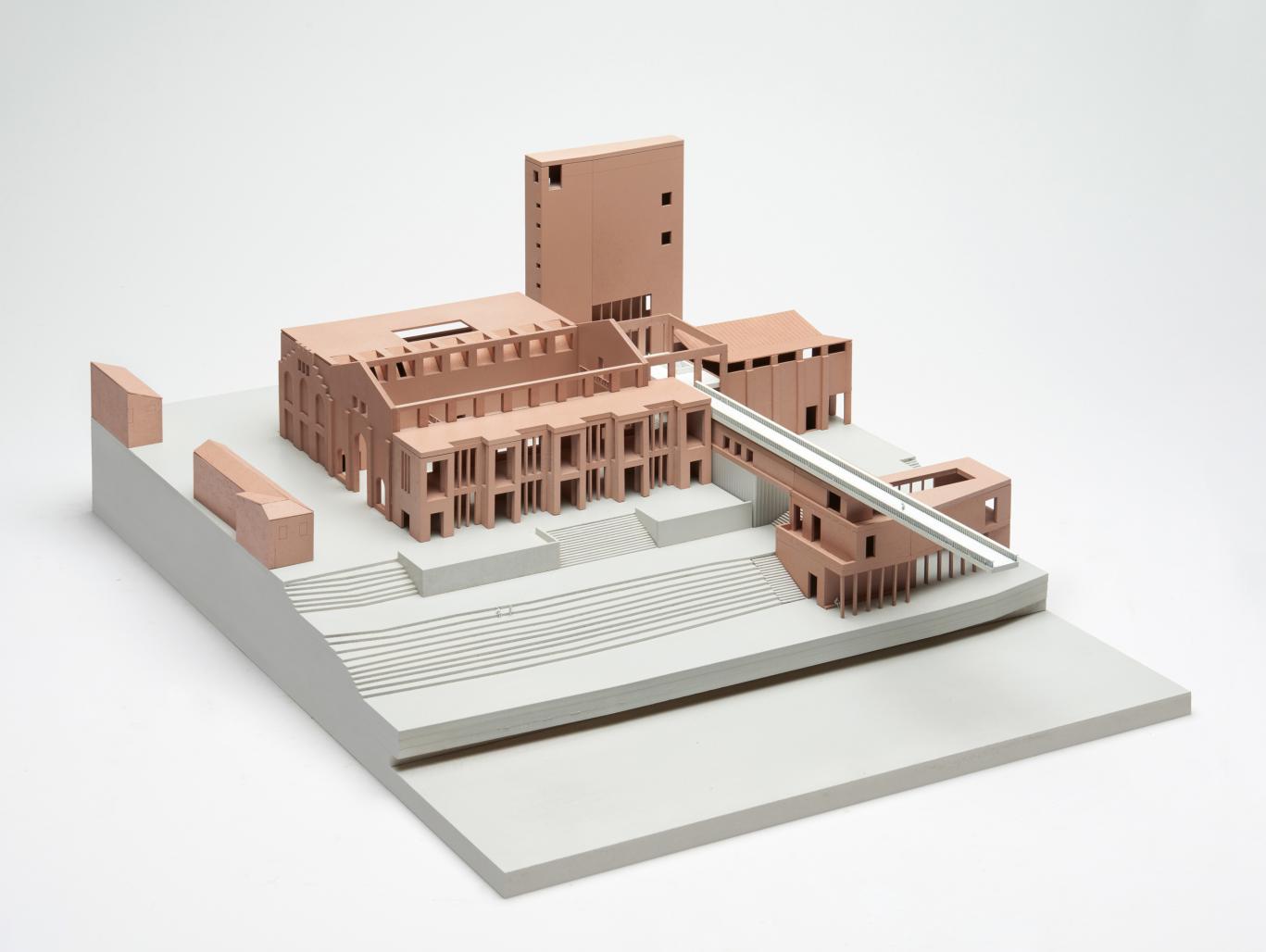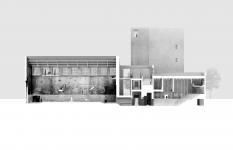Tbilisi City Forum is an attempt to redesign processes of urbanism in Tbilisi, through proposing an architecture which facilitates city making as a collective, democratic endeavour. Its focus is a disused power station in the centre of the city, which is transformed into an active organisation where the evolving project of the city can be revealed, defined, challenged and reimagined.
The proposed organisation aims to bring together a multiplicity of voices into a place of negotiation, with knowledge, research, discussion, debate and presentation emerging as the primary foundations of the organisation. The centre facilitates the curation of ideas and knowledge for the city through workspaces for small scale urban actors, supported by a city archive and various civic functions. A range of discursive spaces allow these issues to be negotiated, debated and then acted upon, and several exhibition and gallery spaces present this to a wider public. By connecting a diverse network of stakeholders, the project aims to democratise the act of city making, and in doing so impact decisions in the interest of both the city and its citizens.
The project lies in the very centre of Tbilisi, regenerating a disused power station and bridging a gentle curve in the Kura river. The organisation is framed and directed by architecture, and can be understood as a composition of parts, the ensemble of which becomes a figure of the city at large by representing some its intrinsic conflict and variation. This reveals itself in the relationships between old and new, conflicting formal languages, materiality, the gradient between inside and out, public and private, defined and undefined space.
A new pedestrian bridge connects the contentious Rose Revolution square directly with the disused power station, transforming its main hall into a public promenade which circulates a scale model of the city. The project also marks a symbolic reclamation of the river front, and this gradient of public spaces defines the project as a piece of urban infrastructure as much as a working organisation. A complex architectural composition embedded within a holistic urban strategy aims to unite the building with its object of concern; the city.
Tbilisi City Forum explores the extent to which the building can become truly civic - representative of, accessible to and acting for a public. It does so by reviving a ruin through a reinterpretation of civic architecture, by curating agonistic political processes and through reimagining the project of the city.
2017
Location: Tbilisi, Georgia
Typology: Regeneration / public infrastructure / public building
Benjamin Wells









